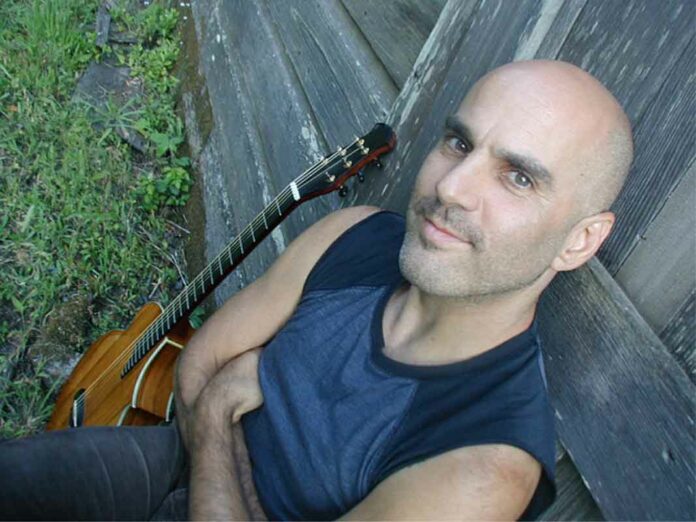By Jane Vick
Guitarist Walter Strauss has released his third solo album.
For Melody, Wherever She May Find Me is the result of an exploration of melodies, both original and covered. During the pandemic, Strauss, an often-touring and collaborating musician, found himself alone with time and his guitar.
Without an audience to perform for or players to perform with, Strauss found himself taking more time with the music, exploring the stripped down throughline of melody. Playing his guitar solo resulted in a different, more focused attention to melody over all else.
In his own words: “The isolation offered a special window to engage the transcendent power of great melodies. I followed where they led.”
For Melody is a beautiful homage to Strauss’ solitude, his devotional attention to the pathways of music and his mastery of the instrument. Seasoned guitar lovers and new listeners alike will find inspiration and tranquility in these tracks.
Though a Sebastopol local now, Strauss was raised in Pennsylvania, the youngest of four in a creative family with European heritage on his mother’s side. Strauss describes his mother as immensely creative and a gifted landscape painter. Creativity of any kind was encouraged in his household. He began playing drums at the age of eight, and at ten took up the guitar.
Strauss went to Hampshire College for writing, but during his studies came across a collection of field recordings of West African music that significantly inspired him, specifically because of its polyrhythmic quality. Strauss refers to it as “a feast of rhythm and melody.”
He discovered the kora, a 22-stringed gourd harp from West Africa. Strauss has been engaged with the instrument ever since, translating many kora melodies onto the guitar.
The musician’s appreciation for African music and instruments has resulted in myriad collaborations with Malian musicians, including Grammy Award-winning kora player Mamadou Diabaté. The two met in Ithaca, NY by chance in the 1990s and later completed several international tours.
In 2012, Strauss’ capacity for translating the layered, multi-tonal sound of the kora onto guitar garnered him an invitation to Mali from esteemed kora player Toumani Diabaté to further expand his knowledge of the instrument. Strauss stayed in Mali for several months and recorded a record with Diabaté’s son, Sidiki, a talented 20-year-old kora player.
Strauss has an ongoing collaboration with West African artist Mamadou Sidibe. Together they are known as the Fula Brothers, with Strauss on guitar and Sidibe playing the six-stringed donso ngoni, another African instrument.
Strauss says that while the influence of West African instruments and musicians on his playing has been significant, he does not attempt to recreate or imitate their sound. Still, Strauss has garnered respect from expert kora and kamale ngoni players because of his ongoing effort to understand the music and the culture it represents.
“I’ve basically stirred some of the beautiful and inspiring musical leanings of these traditions into the pot of my own creative drive and musical history, in a way that I hope is unique and new,” said Strauss.
All of this to say, Strauss’ music is generally collaborative and percussive. For Melody offers a different, more reflective face of his music.
His unique, West-African inspired guitar playing was able to express itself in full on an entirely solo album. Much like the kora or the kamale ngoni, Strauss plays his guitar like a harp, stretching his hands to play a note on each string.
The album,recorded at Soundwell Studios by Strauss and Rich DePaulo, is available for purchase on bandcamp.com. Dave Hall of Lone Cricket Productions filmed creative videos to several tracks on the album, which can be found at walterstrauss.com.









